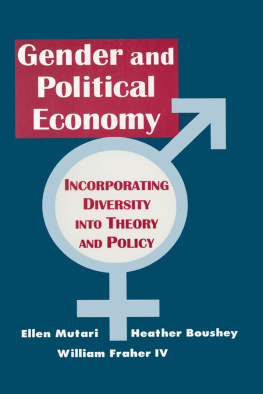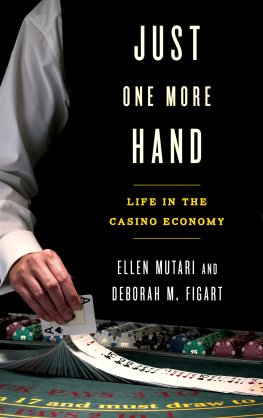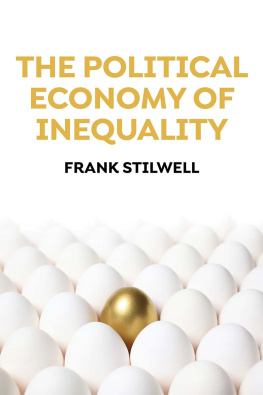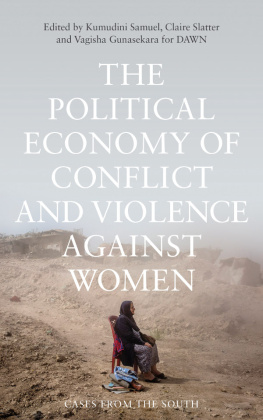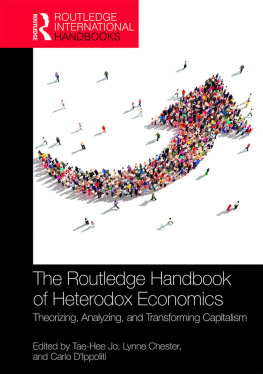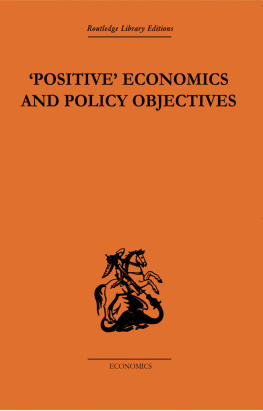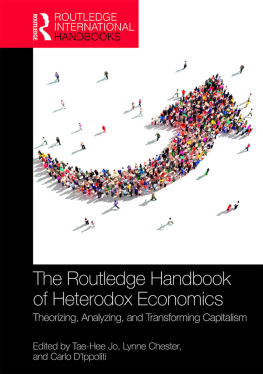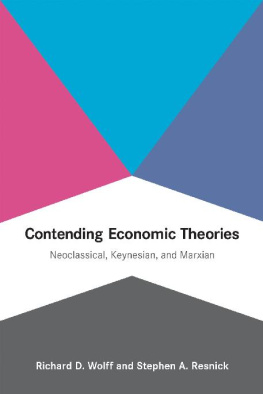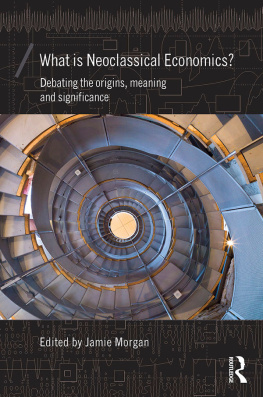First published 1997 by M.E. Sharpe
Published 2015 by Routledge
2 Park Square, Milton Park, Abingdon, Oxon OX14 4RN
711 Third Avenue, New York, NY 10017, USA
Routledge is an imprint of the Taylor & Francis Group, an informa business
Copyright 1997 Taylor & Francis. All rights reserved.
No part of this book may be reprinted or reproduced or utilised in any form or by any electronic, mechanical, or other means, now known or hereafter invented, including photocopying and recording, or in any information storage or retrieval system, without permission in writing from the publishers.
Notices
No responsibility is assumed by the publisher for any injury and/or damage to persons or property as a matter of products liability, negligence or otherwise, or from any use of operation of any methods, products, instructions or ideas contained in the material herein.
Practitioners and researchers must always rely on their own experience and knowledge in evaluating and using any information, methods, compounds, or experiments described herein. In using such information or methods they should be mindful of their own safety and the safety of others, including parties for whom they have a professional responsibility.
Product or corporate names may be trademarks or registered trademarks, and are used only for identification and explanation without intent to infringe.
Library of Congress Cataloging-in-Publication Data
Gender and political economy: incorporating diversity into theory and policy / [edited by] Ellen Mutari, Heather Boushey, and William Fraher IV.
p. cm.
Includes bibliographical references and index.
ISBN 1563249960 (alk. paper).
ISBN 1563249979 (pbk.: alk. paper)
1. Feminist economicsCongresses. 2. WomenEconomic conditionsCongresses. 3. WomenEmploymentCongresses.
I. Mutari, Ellen, 1956. II. Boushey, Heather, 1970.
III. Fraher, William, 1971.
HQ1381.G38 1997
306.36dc21
9640285
CIP
ISBN 13: 9781563249976 (pbk)
ISBN 13: 9781563249969 (hbk)
The conference that originally brought these papers together, Gender, Race, Economics, and Public Policy, took place due to the enthusiasm and initiative of the economics graduate students at the New School for Social Research. Their commitment to the project of integrating gender and race analysis into political economy was the seed from which this project germinated. We would like to extend our gratitude to the organizations at the New School for Social Research that were supportive of the conference. The New School Diversity Initiative, the Graduate Faculty Student Union Fee Board, and the Economics Student Union all supported the conference financially. The conference itself occurred at a difficult time for the program. David M. Gordon, a senior member of the faculty and intellectual pioneer in political economy, passed away only weeks before it was held. The conference, which helped reinvest many with a spirit of intellectual purpose, was dedicated to his memory. The lively discussion and commentary of those who attended was of great assistance to us as editors in developing this project.
Following the enthusiastic response to the conference, department chair John Eatwell suggested that we contact M.E. Sharpe about publishing the conference proceedings. We are grateful for his guidance in developing this project, as well as that of our editor Stephen J. Dalphin. Others also provided invaluable editorial comments and suggestions in assembling this book, among them Deborah Figart, Ellen Houston, Gerard MacDonald, William Milberg, and Thomas Palley. The contributors were delightful to work with, responding valiantly to our efforts to bring this to print while the research was still fresh.
Finally, we are thankful for the larger community of feminist scholars whose work continues to enlighten us.
Gender and
Political
Economy
Ellen Mutari and Heather Boushey
Feminist economics has experienced a recent flourishing of interest and research activity. The key characteristic of this emerging research is a critical stance toward many of the premises, categories, and methods of neoclassical economics (see, for example, Ferber and Nelson 1993; Kuiper and Sap 1995). Taking a cue from the work of feminist philosophers of science, feminist economists view economic discourse as a social practice with concrete historical origins. This new feminist work augments the important contributions of empirical research on womens economic experiences by challenging the gendered assumptions guiding the neoclassical paradigm.
More than the other social sciences and humanities, economics has been a discipline dominated by a reigning paradigm. The wide-ranging theoretical and policy interests of the early classical political economists (such as Adam Smith, David Ricardo, and Karl Marx) were subsumed into a scientific quest for natural laws. Neoclassical economics, defined as the study of the allocation of scarce resources toward the satisfaction of human desires, narrowed the scope and tools of economic inquiry. Yet there has always been a sizable contingent within the discipline that has embraced broader theoretical approaches and methodologies, including Marxists, institutionalists, social economists, and post-Keynesians. Like feminist thought, political economy is less rigid in its disciplinary boundaries. Further, most political economists reject the naturalization of the economy as an ahistorical, disembodied entity. They also question the form of economic rationality posited by neoclassicals as the basis of behavior (see, for example, Block 1990).
Feminist economics, and more specifically feminist political economy, recognizes this shared critical perspective toward mainstream theoretical constructs, but also asserts that feminist analyses provide unique contributions to economic and social theory. Feminist political economy is in many ways an act of synthesisthe creative combustion of insights drawn from diverse intellectual standpoints in the hopes of generating new illumination. Because feminist political economists take inspiration from so many sources, their work reflects a range of interests, principles, and methodologies.
Gender and Political Economy presents some of these diverse approaches to feminist political economy in dialogue with progressive economic theory and public policy. It is an outgrowth of a conference held at the New School for Social Research in New York City in April 1996. The conference on which this volume is based provided a forum to explore how feminist political economy provides greater insight into economic theory and produces fruitful ways of approaching policy. The goals of the conference and of this volume are to extend the boundaries of political economy by incorporating gender in interaction with class, race, and sexuality. This compilation includes a broad range of authors representing diverse perspectivesincluding a new cadre of feminist political economists who build on the work of their feminist forebears.

